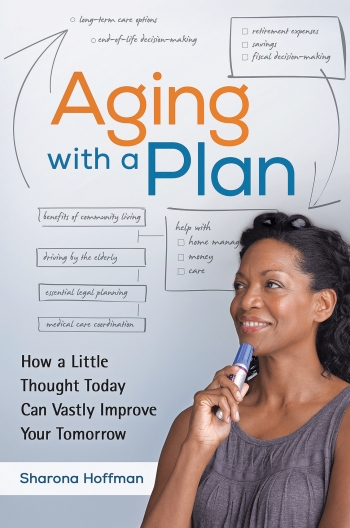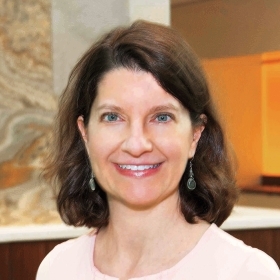The financial press is awash with advice on paying down debt, building up savings, and maximizing one’s investments. But there’s one financial topic far too often overlooked that we will all—fate willing—confront one day. And that is dealing with the aging process.
Enter Aging with a Plan, a new book by Case Western Reserve University professor Sharona Hoffman ’85. A welcome addition to personal finance literature, the book offers much-needed guidance on the financial and legal practicalities of growing older.
With a blue-chip background including a J.D. from Harvard Law School, a master of laws in health law from the University of Houston, two sabbaticals at the Centers for Disease Control and Prevention, and a Robert Wood Johnson Foundation fellowship in public health law, Hoffman is uniquely qualified to share insights about elder planning.
The magic ingredient in this book, however, is the way Hoffman weaves her personal experiences among the practical advice. Whether it’s eldercare experiences with her own parents, her in-laws, and, as of October 2013, with her husband, Andy, who was diagnosed with Parkinson’s at age 55, Aging with a Plan combines the very practical with the very human. My favorite part is Hoffman’s self-assessment of her own preparedness in the conclusion.
Why should you read this book? Because it is chock-full of helpful strategies and checklists that will help increase your odds of living a fulfilling and comfortable life in your later years. Topics addressed include:
Preparing financially for retirement
How much money you’ll need, buying long-term care insurance, the pros and cons of reverse mortgages, and how to seek out competent professional advice;
The benefits of community living
The various types of continuing-care retirement communities and specific criteria to use to evaluate them;
Dealing with the daily logistics of life
Driving while elderly, how to create a support team out of daily money managers, geriatric care managers, elder law attorneys, and emergency response and detection systems;
Getting your legal paperwork in order
A comprehensive discussion of essential estate-planning documents and activities including living wills, advance directives, anatomical gifts, wills, durable power of attorney, trusts, transfer on death, and other asset distribution instructions;
Exiting on your own terms
Navigating nursing homes, palliative care, and deciding about hospice.
This is a comprehensive book that you’ll want to add to your personal library, whether you’re approaching your own retirement or helping older family members manage their lives right now.
Thakor is director of wealth strategies for women at Buckingham and the BAM Alliance.









We ask that those who engage in Wellesley magazine's online community act with honesty, integrity, and respect. (Remember the honor code, alums?) We reserve the right to remove comments by impersonators or comments that are not civil and relevant to the subject at hand. By posting here, you are permitting Wellesley magazine to edit and republish your comment in all media. Please remember that all posts are public.